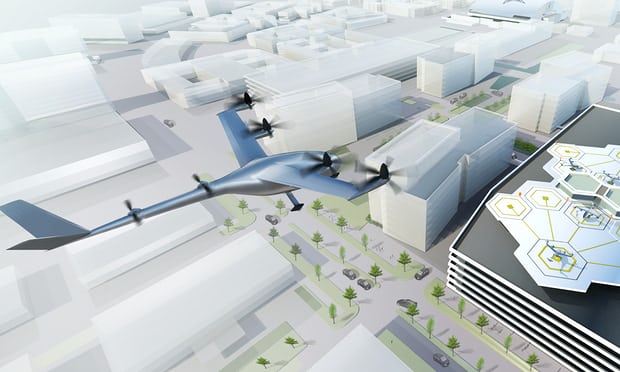Uber signs contract with Nasa to develop flying taxi software
The company’s chief product officer, Jeff Holden, announced the new service contract at Web Summit in Lisbon, alongside its intention to begin testing four-passenger, 200mph UberAir flying taxi services across Los Angeles in 2020, its second test market in the US after Dallas.
Uber said its flying taxi service would be purely electric and that a journey that would take 80 minutes by car in rush-hour traffic could be reduced to as little as four minutes. Uber intends to have some form of its air service operational for the 2028 LA Olympics, but experts remain sceptical as to whether autonomous flying taxis will ever become a reality.
 |
The Space Act agreement, which has been used by Nasa to contract out the development of rockets since the late 1950s, will see Uber participate in a project to develop unmanned traffic management systems as well as the low-altitude unmanned aerial systems (drones) that will be governed by it.
Uber said it did not plan to make the drones itself, instead partnering with five manufacturers that are working on new types of vertical takeoff and landing (VTOL) aircraft. This year Uber hired two Nasa veterans, Mark Moore and Tom Prevot, to run its aircraft vehicle design team and its air traffic management software programme respectively.
Uber has also signed a deal with Sanstone Properties, which has 20 sites across the greater LA area, for plans to build “skyports” that will serve as takeoff and drop-off points for flying taxis.
Such hurdles include the need for approval from the US Federal Aviation Administration for operation outside of normal aircraft corridors, which will be difficult to obtain due to stringent safety and regulation requirements.
Uber has faced endless regulatory and legal battles around the world since it launched its ride-hailing services this decade, including in London where it is battling to retain its licence after having been stripped of it by city regulators over safety concerns.
The firm said it was attempting to change its methods, engaging with regulators in the US and Europe early to win approval for flying taxis. A senior Uber executive told Reuters the company was “very much embracing the regulatory bodies and starting very early in discussions about this and getting everyone aligned with the vision”.

